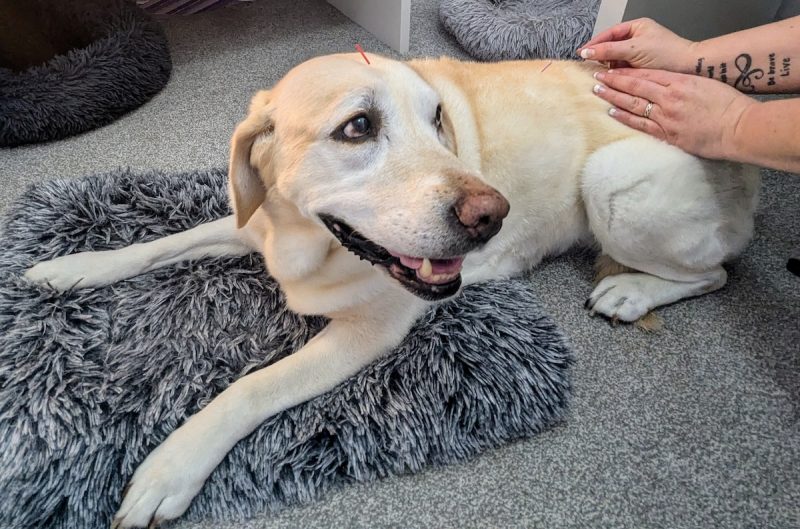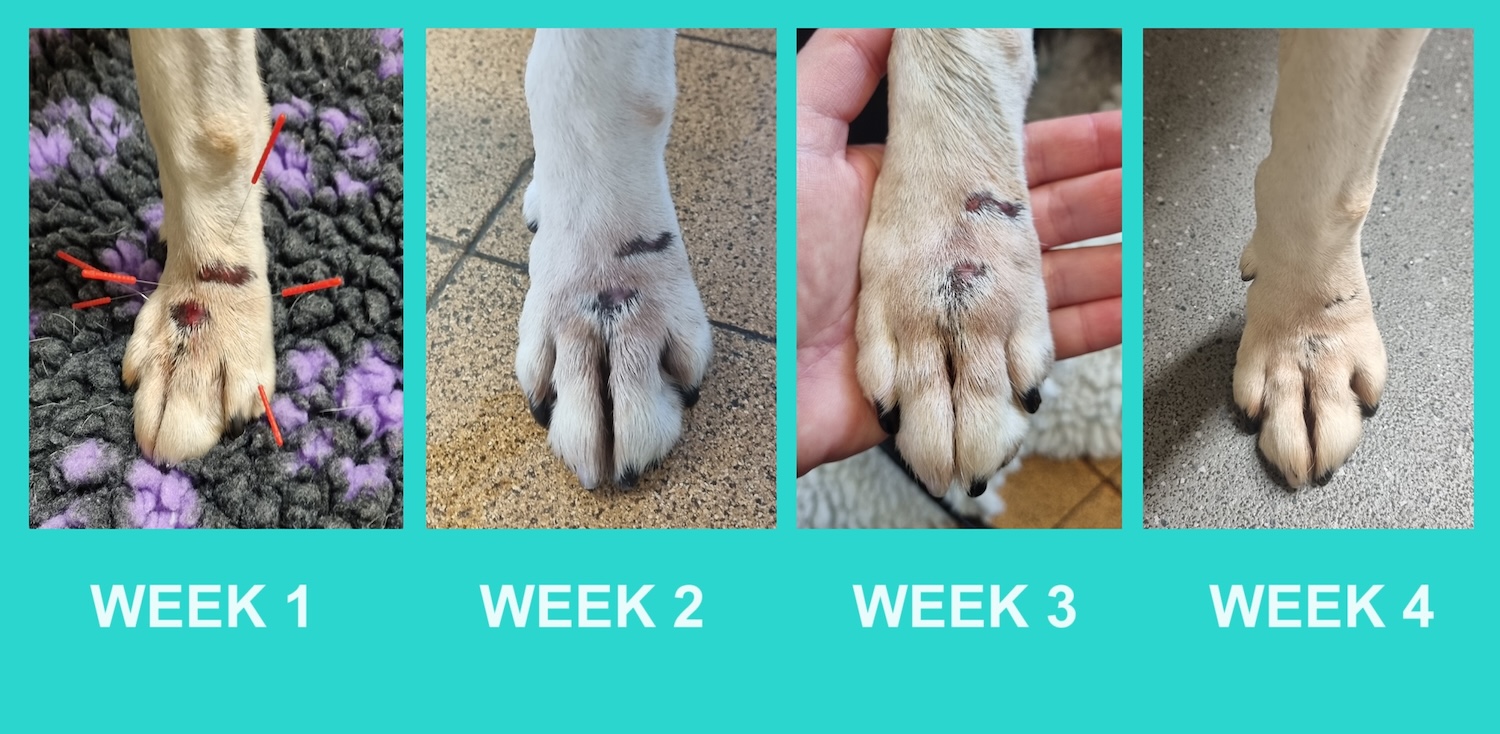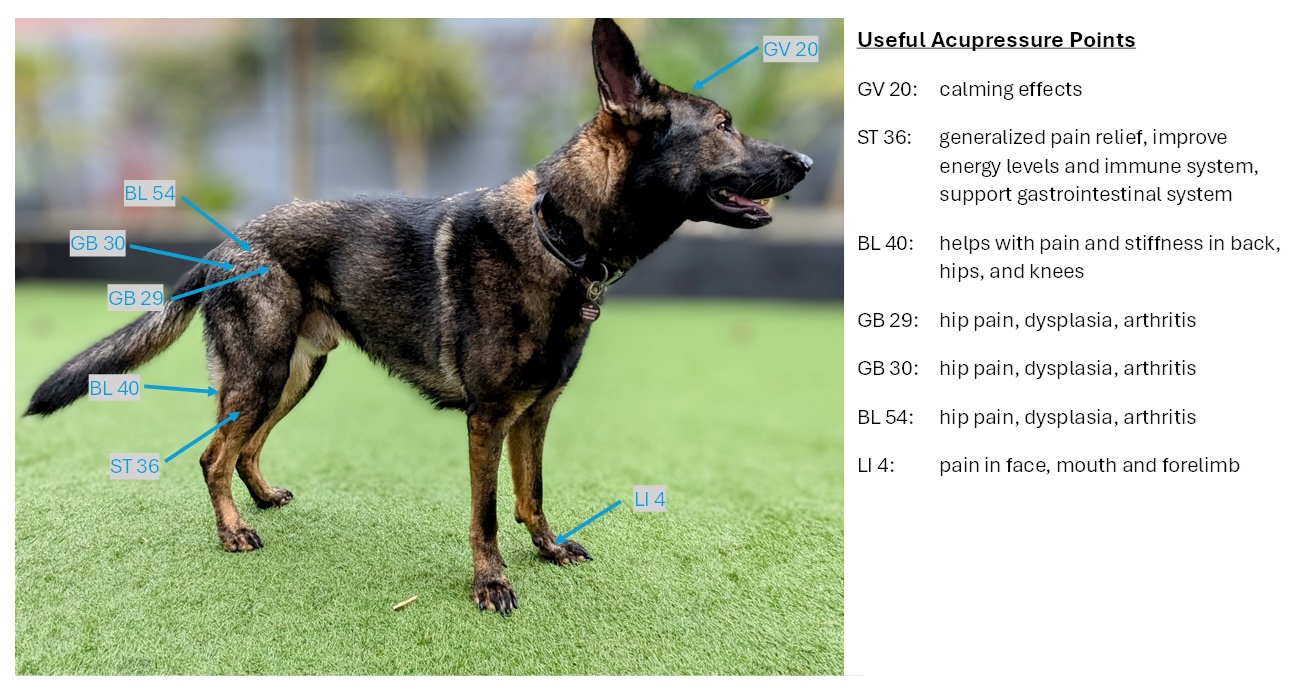Hi, I’m Dr. Karyn! Read my introduction to learn more about me and my five funny dogs, Poppy, Bailey, Kodah, Ned, and Fred.
You’re probably familiar with acupuncture for humans – the therapeutic application of ‘dry’ needles (ie. without an injectable substance) into specific locations on the body to help treat myriad conditions, including pain, anxiety, insomnia, allergies, gastrointestinal disorders, and immune-mediated disease. For many years, acupuncture, along with most other forms of Traditional Chinese Medicine, was disregarded by practitioners of modern medicine as eccentric, outdated, and ineffective.
Over the past few decades, this rather ‘snooty’ perspective has shifted, and we are starting to realize that, not only are many of these therapies effective, but they actually have a scientific basis.
Understanding Acupuncture
When Chinese emperor Huangdi wrote the text known as “The Yellow Emperor’s Classic of Internal Medicine” nearly 3000 years ago,1 acupuncture points were set out along meridians, which relate to a number of areas of the body – 12 to be exact:
| Meridian | Abbreviation | Meridian | Abbreviation |
| Heart | HT | Small Intestine | SI |
| Lung | LU | Liver | LR |
| Stomach | ST | Gallbladder | GB |
| Kidney | KI | Bladder | BL |
| Pericardium | PC | Spleen | SP |
| Large Intestine | LI | Triple Energizer | TE |
| Extra Meridians | |||
| Conception Vessel | CV | Governor Vessel | GV |
By placing needles in specific locations along these meridians, the body’s life force energy, also known as “Qi” (pronounced ‘chee’), could be stimulated or unblocked, providing relief to the corresponding organ. What we know now is that many of these meridians correlate to tissue differentiation during embryonic development, while Qi could be another way of describing nerve pathways, tissue planes, and energy transfer. With all that in mind, it became a little easier for devout scientists to appreciate how this ‘alternative’ therapy might actually work.


Hello Holistic Treatment
I’m a recent convert to holistic therapy, and welcome new ways to treat my patients and pets using a range of different modalities, including acupuncture.
After attending a course on veterinary acupuncture, I became obsessed with using this technique in practice. The majority of my acupuncture patients were receiving treatment for arthritis, but I also had several success stories using dry needling techniques to facilitate wound healing.


In some cases, we were able to reduce the dose of pain medication, while there were others that were suddenly moving more freely than they had in years. With two geriatric Labradors of my own, I am lucky to be able to use this treatment at home as well. Although she has lovely titanium hips, Baileys suffers from arthritis in multiple joints and is on anti-inflammatory medication and joint supplements. Since giving her an acupuncture treatment every few weeks, I have seen an improvement in her overall happiness and freedom of movement, all without needing to increase her medication.
Don’t Try This At Home!
Obviously, acupuncture isn’t something you can do at home on your own pets, but you can try some acupressure and massage.
As the name suggests, acupressure involves using targeted pressure over specific areas, such as those used for acupuncture, to achieve similar results without a needle. It is a technique that just about anyone can use to help relieve tension, provide pain relief, and soothe their pets at home.
Here are some helpful locations you can try on your dog:


There are few among us that don’t enjoy a soothing massage, and our dogs are no exception. The key to using massage on our pets is to apply wide pressure and avoid pushing fingers into tender muscles. Tennis balls can make a great tool for massaging the lumbar muscles, provided your dog doesn’t destroy or bury it!


This article is a part of Dr. Karyn’s series with her five dogs.
